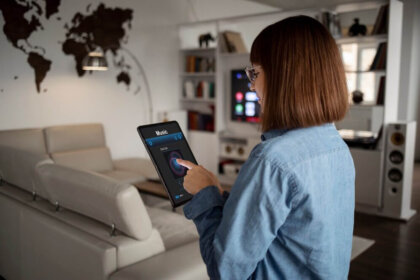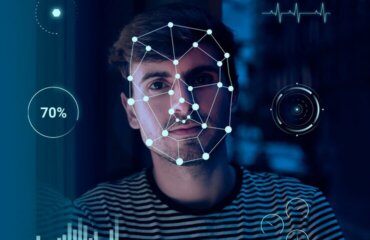
The concept of a “smart home” has evolved beyond mere convenience; it now embodies an ecosystem of connected devices that adapt to your preferences, making your living space more efficient, secure, and comfortable. Machine learning plays a pivotal role in this transformation, enabling smart home automation to learn and anticipate your needs. In this post, we’ll explore the exciting applications of machine learning in smart home automation and how it’s reshaping the way we live.
- Personalized Climate Control: Machine learning algorithms can analyze your daily routines, temperature preferences, and local weather conditions to adjust your thermostat for maximum comfort and energy efficiency. Over time, your smart thermostat learns when to heat or cool your home, ultimately reducing energy consumption and lowering your utility bills.
- Intelligent Lighting: Smart lighting systems equipped with machine learning can automatically adjust the brightness, color, and timing of your lights based on your daily habits and preferences. These systems can even adapt to the time of day, creating the perfect lighting ambiance for any occasion.
- Predictive Maintenance: Machine learning can be used to predict when your appliances or home systems (like HVAC or plumbing) might require maintenance. This proactive approach not only saves you time and money but also prevents unexpected breakdowns.
- Security and Surveillance: Machine learning plays a crucial role in smart security systems. These systems can recognize patterns, identify familiar faces, and differentiate between normal and suspicious activities, sending alerts when necessary. They can also learn to distinguish between false alarms and real threats, reducing unnecessary notifications.
- Voice Assistants and Natural Language Processing (NLP): Voice-activated smart home devices like Amazon Echo and Google Home utilize NLP and machine learning to understand and respond to your voice commands. They can answer questions, control devices, and even provide entertainment.
- Predictive Energy Management: Machine learning can analyze historical energy usage data and make real-time predictions to optimize energy consumption. For example, it can recommend the best times to run energy-intensive appliances to take advantage of off-peak rates.
- Adaptive Entertainment: Smart home automation integrated with machine learning can suggest music, movies, or TV shows based on your preferences and viewing habits. This results in a more personalized entertainment experience.
- Health and Wellbeing Monitoring: Machine learning can be employed to monitor your health and wellbeing within your home. It can detect unusual patterns in activity, sleep, or vital signs and alert you or a healthcare provider when necessary.
- Learning from User Feedback: Smart home systems can improve their performance by learning from your feedback and preferences. For example, if you manually adjust the thermostat after it makes an automatic change, the system can adapt and make better decisions in the future.
- Remote Diagnostics: Machine learning enables remote diagnostics of home appliances and systems, allowing manufacturers or service providers to identify and address issues without the need for a physical visit, saving time and resources.
machine learning is propelling smart home automation to new heights, making our living spaces more intuitive and responsive to our needs. As these systems continue to learn, adapt, and anticipate, the future of smart homes promises to be even more comfortable, secure, and efficient. With machine learning at the core of this transformation, our homes are evolving into spaces that truly cater to our lifestyles and preferences.




